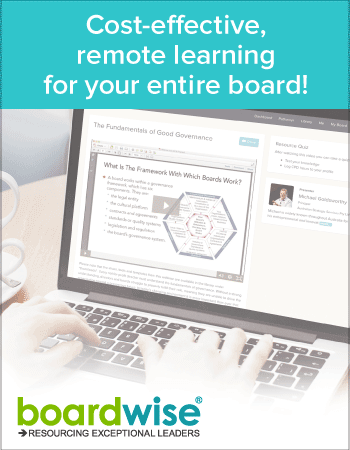non-profit-fact-sheets
B Corps or B Corporations in Australia
Published: April 27, 2023
Read Time: 8 minutes

B Corps are a special group of for-profit entities that prioritise the needs of workers, communities, the planet, and consumers, and take a socially responsible approach to their business. Australia and New Zealand are home to almost 10% of the world’s B Corps. In terms of legal status, B Corporations are not a specific category of entity per se, but even so, the industry has incorporated standards and best practices.
The rise of B Corps first began as a response to concerns for social and environmental issues. The B Corp (short for Benefit) movement comprises for-profit companies that are committed to sustainable and socially responsible practices. The key factors that have contributed to this trend include stakeholder’s increased emphasis on community, the trend towards social responsibility and sustainability in business, policy making, and consumerism, and a desire to develop global solutions to the world’s social challenges.
B Corps in Australia: What are they?
B Corps, or Certified B Corporations, are for-profit companies that balance profit with purpose to benefit people, communities, and the planet. While all B Corps primarily exist to generate profit, each one focuses on social issues. Though priorities vary across global regions, in the Asia and Pacific regions, top company priorities include reducing poverty (62%), and creating decent work and economic growth (59%) for economically disadvantaged people [^1].
To measure whether B Corps are effective at solving these issues, the industry looks at overall performance, business model, the way they operate internally, the kinds of supply chains they use, and the collective actions they take. Having a B Corp status means operating in a socially responsible way. This may mean having to make changes such as updating a company’s constitution and the way it makes decisions. For example, sharing an annual report with the public can increase transparency and accountability. These practices can improve organisational culture and public trust.
Making hiring decisions that improve gender and racial equity creates more fairness and equal access to career advancement, helps employees feel respected and included, and reduces discrimination. These decisions can support economically disadvantaged people by increasing their access to jobs. Introducing HR policies that support staff, such as paid parental leave or caregiver leave can not only attract top talent but will also improve employee’s wellbeing. In addition, being open about supply chain decisions and reviewing existing practices and policies to ensure the company is not harming consumers or the environment can ensure compliance with laws.
Examples of B Corps in Australia
i=Change is a social-impact tech platform for purpose-driven companies committed to the development of women and girls globally. Founder and CEO, Jeremy Meltzer describes his B Corp certification as delivering a meaningful statement of ethics and commitment by “using business as a force of good.” The company has raised over $7.8 million (AUD) to NGOs and impacted over 230,000 women and girls in 14 countries. Customers making purchases can choose which organisation their transaction will benefit and add their own donation. As one of Australia’s most successful B Corps, i=Change supports global initiatives related to mental health, women and girls’ empowerment, refugees, education, infant and maternal health, and more.
Ladies Talk Money is a collaboration between the Australian financial advisor firm Pure Finance and Jessica Brady, a business owner who creates financial courses for women. The company is run by women for women and provides financial resources that support access to information and empowers its customers to learn about and normalise discussions around financial decisions such as property investments and retirement planning. Women-owned businesses are more likely to become B Corps and pay attention to issues of pay equity and financial education. In fact, 67% of women-owned B Corps have conducted a pay equity analysis in their companies [2]. Ladies Talk Money notes that 8 out of 10 women feel uncomfortable talking about money. The B Corp’s purpose is to address the relationship women have with their finances and remove the barriers to achieving financial equality

Australian-based travel agency, Intrepid Travel, operates globally and has earned a B Impact score of 91.2 from B Lab. The company is on a mission to balance profit and purpose and a vision to change the way its travellers see the world. In a survey it recently conducted, it found that 99% of its customers felt their trips enhanced their education and 98% believed it had enhanced their cultural understanding of others. The company is committed to creating sustainable group tours that benefit the communities people visit and the planet.
What is the certification process?
In Australia, B Corps are required to do five things in order to receive their certification. First, they must agree to be transparent on governance, workers, customers, communities, and the environment. Second, they must consider the impact of their decisions on all stakeholders, including the public. Third, they need to achieve a minimum score on their B Impact Assessment. Next, they must agree to recertify every three years by satisfying industry standards each time. Finally, they must complete a questionnaire, substantiate evidence that they meet the guidelines, do an interview, and have their information reviewed by B Corp.
While there are no specific laws in Australia governing B Corps, receiving certification sends a signal that your company is meeting industry standards when it comes to accountability, transparency, and performance. B-certifications are verified by a private company called B Lab, a non-profit organisation. B Lab is responsible for developing standards and governance guidelines for B Corps. To become a certified B Corporation, businesses must meet eligibility requirements, complete a B Impact Assessment, and submit an application to B Lab. B Lab is tasked with conducting these assessments to measure, manage, and improve companies’ positive impact on five key areas:
- Customers
- Communities
- Workers
- Suppliers, and
- The environment.
It reviews potentially negative impacts associated with company practices. It also sets the industry standards for large B Corps that make over $5 Billion in revenue annually. Priority areas for improvement are determined by regional Standards Advisory Groups around the world and the Standards Advisory Council.
Who are the B Corp industry’s Standards Advisory Council members?
The Standards Advisory Council is an independent, multi-stakeholder group that oversees B Lab’s standards. The group represents members from the B Corp industry operating around the world. Each has a specific expertise such as business, academia, non profit, or government, and is responsible for advising B Lab on issues that relate to business practices and policies. They also evaluate compliance and determine risk eligibility. Members of the Council are selected by B Lab’s Board of Directors.
Is B Corp governance different from other businesses?
Yes and no. B Corporations are regulated by the Corporations Act 2001 (Cth) and are accountable to regulators such as ASIC, APRA, and the ACCC. They must register their business, appoint board directors, maintain financial records, and produce annual statements like other companies. As certified B Corps, they must also meet the requirements set out by B Lab, the recognised authority in the industry. One such rule is that constitutions should be amended to include a clause that board directors will consider stakeholders when they make decisions. Another is that B Corps must develop a purpose statement that outlines how they plan to deliver returns to shareholders and still have a positive impact on society. To adopt these changes, a B Corp must pass a special resolution to change its constitution.
Can Trusts operate as B Corps?
Yes, organisations operating as a trust can become B Corporations. The trustee appointed by the board will be recognised as the direct owner of the business and any of its assets. They will need to meet obligations to the trust’s beneficiaries and still show that they are having a positive impact on consumers, the public, the community, or the planet, depending on their purpose. In the same way other B Corps must meet certification requirements, B Corp Trusts must develop a purpose statement outlining how they will balance shareholder returns with social impact, introduce a constitutional clause that makes clear reference to board members’ responsibility to consider all stakeholders in their decision-making, and a special resolution updating the constitution.
Can cooperatives become B Corps?
Yes, cooperatives can also be B Corps. They must, of course, meet the legal requirements set out by the Co-operatives Act of their state or territory. To make this change, cooperatives must add a clause to their rules, which likely already state what the organisation’s objectives are. The clause must align with existing object clauses and meet B Lab certification obligations that require an explanation of how members will meet stakeholder obligations and balance having a positive social impact. Once the rules have been updated, the cooperative must notify the state authority and submit the updated rules. The entity will still need to meet its legal obligations as a non-profit organisation.
What is the process for recertifying as a B Corp?
Certified B Corps are required to update their B Impact Assessment every three years. When recertifying, companies must submit an updated assessment by using the B Corp Lab platform. They must also provide documentation that shows company practices and policies reflect what is claimed in the impact assessment and maintain a score of at least 80 points. B Corporations must meet certain legal requirements such as providing a legal commitment letter, and are expected to fully engage in a site review process. A fee must also be paid.
Additional Resources
The B-Corp Handbook, Second Edition: How You Can Use Business as a Force for Good, written by Ryan Honeyman and Tiffany Jana. It is considered the global authoritative guide to B Corp certification.
To learn more about B Corp certification, visit the B Corp Lab webpage.
Share this Article
Recommended Reading
Recommended Viewing
Author
- About
-
Better Boards connects the leaders of Australasian non-profit organisations to the knowledge and networks necessary to grow and develop their leadership skills and build a strong governance framework for their organisation.
Found this article useful or informative?
Join 5,000+ not-for-profit & for-purpose directors receiving the latest insights on governance and leadership.
Receive a free e-book on improving your board decisions when you subscribe.
Unsubscribe anytime. We care about your privacy - read our Privacy Policy .










